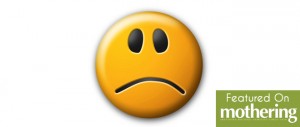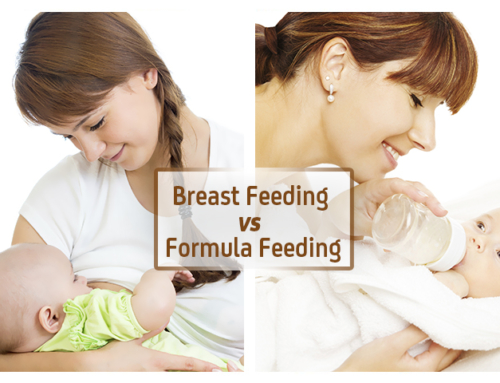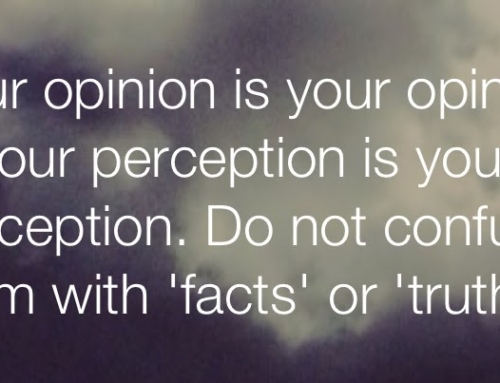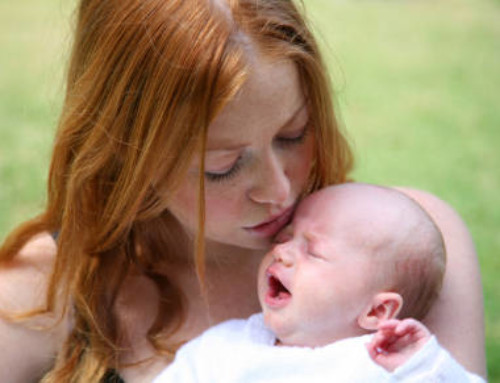It seems more and more in Western society, women are trying to push for ‘guilt-free parenting’ as a response to the ever popular ‘mommy guilt’ problem. There are books, blogs, and articles on the topic of mommy guilt, many telling you that no matter what you do, you shouldn’t feel guilty; whatever you choose to do as a parent is valid. Most of these people will tell you that guilt is a bad emotion that we should try to rid ourselves of and it does no good to anyone to be feeling guilty, especially about parenting choices. But they are totally, unassailably wrong.
Before we take a better look at ‘mommy guilt’ per se, we need to deal with the issue of guilt in general. Specifically, the idea that guilt is a bad emotion that doesn’t help us. Yes, it feels horrible; we all know that pit in the bottom of our stomach that comes from feeling guilty over something. You so desperately want to make something right and you feel like you can’t at that moment and you just want that feeling to go away. Permanently. But just because it feels awful doesn’t make it a bad feeling. In fact, the reason it’s a good emotion is because it feels so bad.
Unfortunately, us humans are much more sensitive to negative emotions and situations than we are positive ones
This is why ‘mommy guilt’ is key for parenting – you learn from it and it can make you a better parent. And if you can’t learn from your mistakes as a parent, then you’re bound to mess up again and again. Even in the smallest of ways, guilt can play an important role. I was once walking around with my daughter cradled in my arms and accidentally bumped her head against the wall as I was turning a corner. While my daughter’s cries were bad, what really felt awful was the guilt that it was me who had hurt her. It’s been months since that happened, but I felt so awful that to this day, every time I walk around a corner with her cradled in my arms, I’m much more aware of the space around me to ensure it doesn’t happen again.
Now, if you think that the ‘guilt’ leads to feeling immobilized and useless, that’s not ‘mommy guilt’, that’s post-partum depression (or just downright depression). And if you have that, you need to seek medical help immediately. Those extreme thoughts help no one. But it seems that we’ve now we’ve confounded the two such that any bad feeling is considered bad and should be removed from mom’s experience, which is ridiculous. You do need to feel guilty over some things so that, once again, you can learn from them.
But if ‘mommy guilt’ is so good, why are so many people speaking out against it? First, there are those who speak out against it because they don’t want to have to be responsible for their own behaviour and having to make changes to their lives. These people need a serious reality check because all they’re doing by ignoring the guilt is harming their child. No one is perfect and we’re bound to make mistakes, but guilt is our way of telling ourselves that we need to shape up in one domain or another and we need to listen to that. Second, and I believe this to be a greater issue, people tend to feel guilty over too many things, not all of which are to do with what’s best for baby or mom, but what they believe society wants from them. In this case, listening to the guilt is also a good thing only the response is to truly analyze why you’re internalizing society’s expectations instead of your own.
In fact, it may be that what people are referring to when talking about ‘mommy guilt’ is actually ‘mommy shame’. In shame, one views themselves as being less than worthy and is typically a response to something social, whereas guilt is really a feeling of regret over a wrongdoing one has done[9]. Although guilt has been related to positive outcomes, such as empathy and prosocial behaviour (as previously mentioned), shame has no such correlates. It has been said that “shame is associated with the desire to undo aspects of the self, whereas guilt is reported to involve the desire to undo aspects of behavior”[10]. This distinction is key as no one should intentionally make a person feel debased in such a way, but we also must realize that guilt does not do that, and people can and should feel badly about certain actions without it having to affect their sense of self. (We have a newer problem of people crying “shame” when no such thing has occurred and this seems to be misplaced guilt. Trying to turn guilt into shame and flipping it on others isn’t helpful either.)
A mother shouldn’t be made to feel shame over many choices or actions, but if you feel guilty about something, you should listen to that. Simply pushing it aside or repeating mantras about refusing to feel guilt for one’s actions doesn’t benefit you at all because it only allows you to master the art of ignoring your instincts. The fact remains that you’re feeling guilty for a reason and you should address what that reason is. Guilt is powerful and shouldn’t be ignored, especially not in favour of “anything goes” attitudes. If you listen to your guilt, it can be used for good. It can make you a better person, and more importantly, a better parent.
[1] Baumeister RF, Bratslavsky E, Finkenauer C, & Vohs KD. Bad is stronger than good. Review of General Psychology (2001); 5: 323-370.
[2] Ibid.
[3] Leith KP & Baumeister RF. Empathy, shame, guilt, and narratives of interpersonal conflicts: Guilt-prone people are better at perspective-taking. Journal of Personality (1998); 66: 1-37.
[4] Thompson RA & Hoffman ML. Empathy and the development of guilt in children. Developmental Psychology (1980); 16: 155-156.
[5] Tangney JP. Moral affect: The good, the bad, and the ugly. Journal of Personality and Social Psychology (1991). 61: 598-607.
[6] Hoffman ML. Varieties of empathy-based guilt. In Guilt and Children ed. J Bybee (1998); 4: 91-112. New York: Academic.
[7] Ibid.
[8] Silfver M, Helkama K, Lönnqvist J-E, & Verkasalo M. The relation between value priorities and proneness to guilt, shame, and empathy. Motivation and Emotion (2008); 32: 69-80.
[9] Eisenberg, N. Emotion, regulation, and moral development. Annual Review of Psychology (2000); 51: 665-697.
[10] Ibid, citing: Niedenthal PM, Tangney JP, & Gavanski I. “If only I weren’t” versus “If only I hadn’t”: Distinguishing shame and guilt in counterfactual thinking. Journal of Personality and Social Psychology (1994); 67: 584-595.







Hit the nail on the head. People feel guilt not because someone else tells them something, but because they know they are doing something wrong. Sometimes this knowledge can be prompted by information received, sometimes by inate instinct, but it’s not the fault of the informer, that’s nothing more than a case of shooting the messenger! I disagree, however, with your on shame. Shame is motivated by society or your peers, but it’s still not an external force. If you are confident and fully believe in your actions you can not be shamed. You only feel shame about something you are unsure about or, like guilt, know you did wrong. The worst concentrated effort to shame someone will never work if they aren’t *already* guilty over it. shame, like guilt, makes you take a long hard look at yourself and change what needs to be changed to line up with your thoughts on the matter. It’s only this same avoid-all-negativity/happiness-is-an-end-unto-itself current mindset that sees shame (and guilt) as inappropriate and negative emotions or consequences.
I understand where you’re coming from via shame, but I focused exclusively on the research definition of it which is an external one. And in that regard, I do believe that people can be made to feel bad about themselves as people instead of over actions. Like telling a child they’re stupid instead of that they didn’t work hard enough to do well on something, and perhaps it is only some people who are prone to this (like children, whose self-view is still being formed). It would be very interesting to see if there are those who cannot be shamed no matter what or in certain areas of life in which they feel confident about what they are doing! I know it would be near impossible to shame me about how I parent 🙂 Wonderful research idea!
I agree that for people (like children) that have very fluid view of themselves shame is very likely more an external than internal force. I suppose I was ‘vaccinated’ against that from a young age because my parents taught a stable and firm sense of self. You don’t like something about yourself? Change it. You’re comfortable with it? Then it’s between you and God. It would be an interesting reseach project, or at least social experiment.
[…] davantage de culpabilité ont tendance à avoir plus de facilité à coordonner les points de vue[3], à faire davantage preuve d’empathie envers autrui[4][5][6], à adopter plus de comportements […]
[…] Read The Rest Here! […]
I appreciate what you are saying here, but it could have been condensed into one paragraph.
Oh Tracy! You shared this on facebook just when I needed an article like this.
May I translate it to danish and share with very clear credits?
(Many of my followers have a hard time with english)
Of course!!